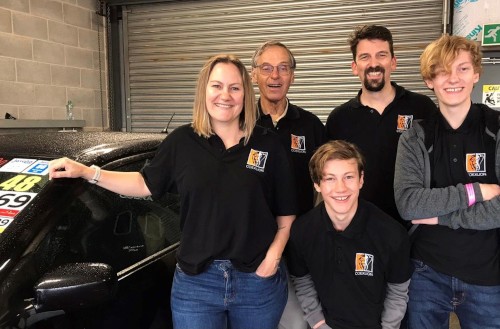I have always been a petrol head. As far back as I can remember my mother would find any form of motorsport on the TV to sit me in front of to get 30mins peace and quiet. I grew up in the UK in the 80s, where endless cable TV channels were not available, Scalextric and RC cars provided the outlet before I hit 17. I bought my first mini before I’d even passed my test. It’s no surprise that as a grown-up I spend as much time (and money) as I can tinkering with cars and bikes. My outlet from the stresses of daily life, is not on the golf course, but on the racetrack, going round in circles.
But herein lies a conflict, that genuinely troubles me. I class myself as a bit of an environmentalist. My mother was a strong influence here. Decades before single use plastic became a hot topic, she was washing up and reusing plastic containers and bags; we separated and recycled or composted our waste, long before home collection. My childhood home was, and still is, about 5 degrees colder than everyone else’s. Reducing waste has always been important to me, and I give my boys the same, “put a jumper on before you put the heating on” lecture. But there is no denying that driving round in fast circles; not getting anywhere, but burning through brake pads, tyres, and fuel, is not exactly environmentally friendly.

The Pursuit of Performance and Efficiency
At the premium end of motorsport, there is always the justification that the pursuit of performance and efficiency drives the technology that makes road cars more efficient. There is no denying that Formula E and F1 in the hybrid era, have led to advances in automotive batteries and motors. These will filter down through hyper cars and premium cars, to everyday road cars in a matter of time. So, there can be some justification of motorsport having some positive influence.
But I can’t find a way of justifying track days and club racing on an environmental basis. This is akin to trying to justify the fuel used on a long-haul holiday flight to Florida, when a Trip to Brighton in your Tesla will result in a much lower carbon debt. How can we make the trade off between leisure activity and the environment? Due to the laws of entropy, every action has to contribute to the ultimate heat death of the universe! Are we all doomed to sit at home in the dark if we care about the environment?
There is some progress in this area. I recently experienced electric trials bikes for the first time (see my linked in article form more detail). There are now some electric karting series starting at the grass roots of the sport. The first Hybrid British Touring Car made a demonstration run in a race for the first time this month. But there is little or no action in the owner-driver track day arena. In fact, on a recent track day at Donington Park, electric cars were specifically disallowed! Presumably as the safety marshals are not trained or equipped to deal with an accident or fire involving Lithium batteries. Then there are also the limitations of fast charge availability at circuits, not to mention the large energy usages.

Track Day at Donnington
For example, my recent track day at Donnington consumed approx. 75Litres of V-Power, this is approximately 2,760Mj of energy. In EV terms this is 767kWh. The fastest Ultrafast Charging in the UK gives energy at a rate of 150 kW per hour, this would take approx. 5hours to charge – just for the time at the track, not including the drive to and from! However, this is not really a fair comparison as even the most efficient race petrol engine can only achieve 25% efficiency, and an electric motor can be up to 90% efficient. This makes the battery energy requirement around 213 kWh. This would require a more palatable 1.5 hours charging, a lot more time than it takes to empty a Gerry can into the tank, and longer than the obligatory lunch break. These rough calculations are assuming like for like vehicle mass. The sportiest Tesla weighs in at 2.1tonnes, compared to my humble Type R at 1.2tonnes standard (actual car is stripped out to reduce mass further) This extra tonne will lead to more tyre and brake wear, less performance or more energy consumption to compensate. Although some of this may be offset with regenerative braking, saving pads, and helping improve the range further. You cannot avoid the requirement for on-the-day charging by pre-charging; the largest battery Tesla offer currently is a 100kWh, not enough for an uninterrupted day, more capacity would lead to more mass, more energy consumption, and more charging time.
But I am not put off, these challenges are something that I personally want to tackle. I want to enjoy my track days and trail rides guilt free. I want to continue going round in circles as the countries fuel pumps are converted to charging points and the cost of petrol inevitably increases. Through Coexlion and our team of engineers we will pursue EV technology in this field of leisure, and ultimately turn the world of Petrol-Heads into Battery-Heads. Watch this space…

